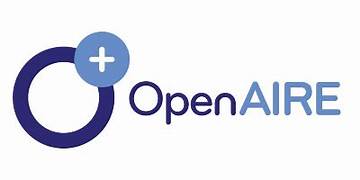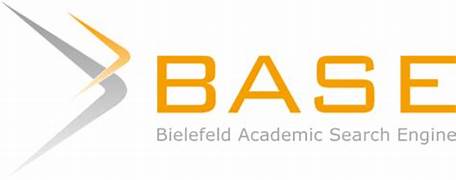The Use of the Mattampu’ Application to Improve Pregnant Women’s Knowledge of Physiological Changes During Pregnancy
DOI:
https://doi.org/10.64141/pmhs.v2i1.43Keywords:
Mobile Application, Pregnant Women’s Knowledge, Physiological Changes, Digital Education, PregnancyAbstract
Physiological changes during pregnancy often cause discomfort and anxiety in pregnant women, which, if not well understood, may increase the risk of pregnancy complications. This study aims to evaluate the effectiveness of the Mattampu’ application, a locally developed Android-based educational media, in improving pregnant women’s knowledge of physiological changes during pregnancy. A descriptive quantitative design with a one-group pretest–posttest approach was employed. The sample consisted of 90 pregnant women selected through accidental sampling at the Kassi-Kassi Public Health Center, Makassar. The intervention was conducted through the use of the Mattampu’ application, and knowledge levels were measured before and after the intervention using a structured questionnaire. Analysis using the McNemar test revealed a significant increase in knowledge levels across all trimesters: from 26.7% to 73.3% in the first trimester (p=0.001), from 23.3% to 93.3% in the second trimester (p=0.000), and from 23.3% to 90.0% in the third trimester (p=0.000). This study concludes that the Mattampu’ application is effective in enhancing pregnant women’s knowledge of physiological changes during pregnancy and holds potential as an adaptive, contextual, and sustainable model of digital education in antenatal care services.
References
Almutairi, G., Alshmrani, L. S., Alomairi, R. M., Alotaibi, M., Alhumaidi, N. H., Alotaibi, R., Aljebeli, S., Alarfaj, S. A., Alhenaki, S. A., Albedah, B. A., & Alhomaid, T. A. (2024). Assessment of Pregnant Women’s Satisfaction With the Model of Care Initiative: Antenatal Care Services at Primary Health Care Centers in the Qassim Health Cluster, Saudi Arabia. Cureus. https://doi.org/10.7759/cureus.76383
Babatunde, A. O., Ayede, A. I., Colangelo, A., Nguyen, T., Aborode, A. T., Umeh, C., Hernandez, M. P., Ayede, O. I., & Ayede, O. O. (2025). Development of an educational and monitoring mobile application for pregnant women in Nigeria. Frontiers in Public Health, 12. https://doi.org/10.3389/fpubh.2024.1368631
Bjelica, A., Cetkovic, N., Trninic-Pjevic, A., & Mladenovic-Segedi, L. (2018). The phenomenon of pregnancy — a psychological view. Ginekologia Polska, 89(2), 102–106. https://doi.org/10.5603/GP.A2018.0017
Ermiati, E., Suherman, A. A., Cahyani, R., Putri, M. U. A., Parwati, H. C., Rahmawati, N. R., Khalam, S., & Srimurni, N. A. (2024). Penggunaan Aplikasi Kesehatan untuk Media Edukasi Kesehatan pada Ibu Hamil: Narrative Review. MAHESA, 4(12), 5680–5696. https://doi.org/10.33024/mahesa.v4i12.15758
Ganji, Z., Simbar, M., Tork Zahrani, S., Borumandnia, N., & Kiani, Z. (2025). Women’s Satisfaction with the Provision of Prenatal Service by the Care Providers: A Cross-Section Analytical Study. Current Women’s Health Reviews, 21. https://doi.org/10.2174/0115734048320197241114052641
González, S., Montoya, G. A., & Lozano-Garzón, C. (2024). Comprehensive Monitoring System for High-Risk Pregnancies. SN Computer Science, 5(8). https://doi.org/10.1007/s42979-024-03342-x
Herliana, H. (2025). Midwife Professionalism and Patient Satisfaction in Reproductive Midwifery Services: A Quantitative Study. Jurnal Midpro: Karakteristik, Analisis & Model, 16(2), 209–217. https://doi.org/10.30736/md.v16i2.784
Jannah, N., Winta, M. V. I., & Pratiwi, M. M. S. (2024). Enhancing Maternal Mental Health Knowledge through Hypnocomfort Pregnancy Multimodal Psychoeducation Media. International Journal of Educational Qualitative Quantitative Research, 3(2), 15–24. https://doi.org/10.58418/ijeqqr.v3i2.107
Jibrin, M., Oyinvwi, U. V., & Ibrahim, A. (2024). Innovative educational technologies for Africa. https://doi.org/10.70382/tijerls.v06i8.008
Jones, R. E. (2006). CHAPTER TEN – Pregnancy (pp. 253–296). https://doi.org/10.1016/B978-0-08-050836-8.50014-7
Kartini, K., Farming, F., & Sabur, F. (2025). Pregnant Women’s Knowledge and Attitudes About Pregnancy Care: The Effect of Using the Ebumil Android Application. Public Health of Indonesia, 11(S1), 71–79. https://doi.org/10.36685/phi.v11is1.901
Malik, M., Dwiyanti, R. A., Azzahra, N. N., Agustiansyah, R., Zidan, M., Maesaroh, S., Maulana, R. A., Fadhila, D. N., Nurhikmah, I., Sunarti, P., & Ichsan, M. (2024). Technology in Learning in Rural Utilization Areas as an Alternative for Educational Development: Case Study of KKN at SDN Rancakole. Aurelia, 4(1), 819–825. https://doi.org/10.57235/aurelia.v4i1.4273
Nawir, F., Kartini, K., Aisa, S., & Zabur, F. (2025). Pregnant Women’s Knowledge And Attitudes About High-Risk Pregnancy: The Effect of Using the JIPH Educational Application. Public Health of Indonesia, 11(S1), 89–98. https://doi.org/10.36685/phi.v11is1.910
Panjarwanto, D. A., Restalia, F., Indrawan, I. W. A., Utomo, R. P., & Permana, A. Y. (2024). The Relationship between Antenatal Care Quality and Pregnancy Outcomes: Systematic Literature Review. Jurnal Info Kesehatan, 22(4), 792–802. https://doi.org/10.31965/infokes.vol22.iss4.1595
Pushpa, D., Sangeetha, X., Roy, S. M., & Devikala, K. (2024). Effectiveness of antenatal education on knowledge and practice of maternal nutrition among antenatal women. International Journal of Reproduction, Contraception, Obstetrics and Gynecology, 14(1), 94–100. https://doi.org/10.18203/2320-1770.ijrcog20243931
Downloads
Published
How to Cite
Issue
License
Copyright (c) 2025 Tahira

This work is licensed under a Creative Commons Attribution-ShareAlike 4.0 International License.
Licence Term
Licence

Copyright @2024 Papua Medicine and Health Science. This is an open-access article distributed under the terms of the licensed under a Creative Commons Attribution-ShareAlike 4.0 International License.














